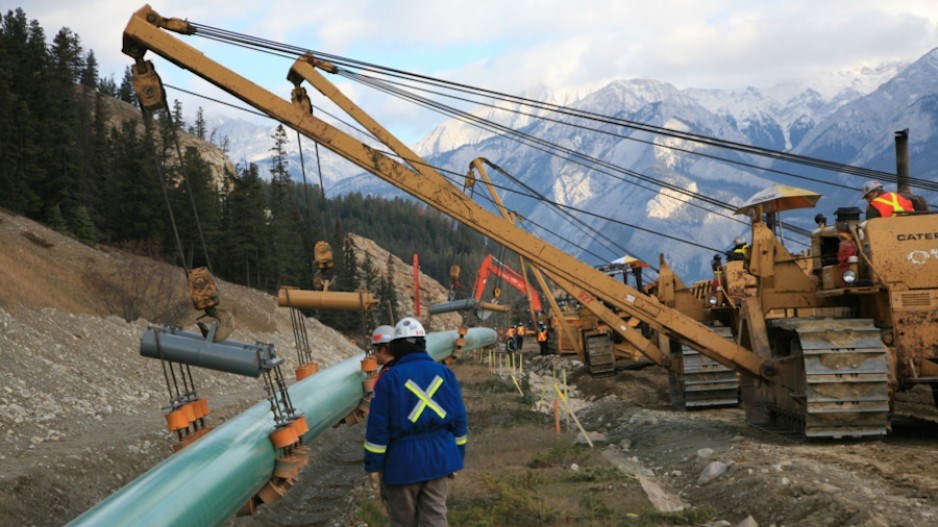In April 2019, right after the United Conservative Party (UCP) secured a majority mandate in Alberta’s election, the prospect of a unique conflict between provincial governments was palpable. Premier Jason Kenney began to ponder “turn off the taps” legislation due to the perceived B.C. government opposition to the Trans Mountain pipeline expansion.
A few weeks later, the federal government re-approved the pipeline expansion. In July 2020, all legal challenges to the proposed project effectively ended. Since then, we have had other developments. B.C. Premier John Horgan stands ready to assemble a majority government after last month’s election. Kenney, who has presided over a provincial administration that has consistently garnered subpar ratings for its handling of the COVID-19 pandemic, still has two and a half years left in his majority mandate.
With this “new normal” in mind, Research Co. and Glacier Media asked residents of British Columbia and Alberta about their views on the pipeline. We found that the two solitudes that seemed ready to bicker in 2019 are starting to share the same feelings on specific aspects of this project.
More than half of British Columbians (52%) agree with the federal government’s decision to re-approve the Trans Mountain Pipeline expansion. This represents a four-point drop since we last reviewed the issue in December 2019, but nowhere near the almost even splits that dominated this question in years past.
Support for the project in British Columbia increases with age, from 44% among those aged 18 to 34, to 50% among those aged 35 to 54 and to 60% among those aged 55 and over.
Sizable proportions of residents of northern B.C. (70%) and southern B.C. (63%) favour the pipeline expansion, along with 51% of Metro Vancouverites and 50% of those in the Fraser Valley. On Vancouver Island, traditionally the the province’s most environmentally friendly area, opinions are more nuanced: 42% are in favour of the project, and 35% are against it.
While 74% of BC Liberal voters in the most recent provincial election are in favour of the pipeline expansion, support stands at 51% among BC NDP voters and just 38% among BC Green Party voters.
The push for action that would delay or cancel construction is stagnant. Two in five British Columbians (40%) think the provincial government should do anything necessary to ensure that the Trans Mountain Pipeline expansion does not happen – unchanged since December 2019.
We see little movement as well on the proportion of British Columbians who think the pipeline will create hundreds of jobs for residents of the province (68%, unchanged) and on how many believe the expansion threatens the health and safety of British Columbians (44%, down one point).
Most British Columbians (54%, down five points) are disappointed with the way the federal government has handled the expansion, and 38% (down one point) foresee lower gas prices as a result of this project.
In Alberta, the numbers tilt heavily in favour of carrying on. Almost three in four Albertans (74%) agree with the federal government’s decision to re-approve the pipeline expansion, and just 15% are opposed.
There is little difference between residents of Edmonton, which is traditionally more centre-left minded than the rest of the province, and those in Calgary. In the two main urban centres, more than seven in 10 residents want to see the expansion through (72% in Edmonton and 71% in Calgary). Support is slightly higher in the remaining areas of the province (74%).
While 40% of British Columbians are willing to stop the project, only 22% of Albertans feel the same way. An even smaller proportion (17%) describe the expansion as a threat to the health and safety of Albertans, and practically four in five (79%) think it will create hundreds of jobs in the province.
The one aspect where the numbers are similar is Ottawa. Almost three in five Albertans (59%, five points higher than in British Columbia) are disappointed with how the federal government has handled the pipeline expansion.
The pipeline file has been extremely complex in British Columbia. On some issues, the views of the province are starting to align with what Albertans have long wanted – especially with a struggling economy. Opposition to the project has remained low this year due to a combination of factors: genuine concerns over job creation and a sense of resignation after the federal government’s direct intervention to keep the project afloat. •
Mario Canseco is president of Research Co.
Results are based on an online study conducted from October 29 to October 31, 2020, among 800 adults in British Columbia, and an online study conducted from November 2 to November 4, 2020, among 700 adults in Alberta. The margin of error, which measures sample variability, is plus or minus 3.5 percentage points for British Columbia and plus or minus 3.4 percentage points for Alberta, 19 times out of 20.




